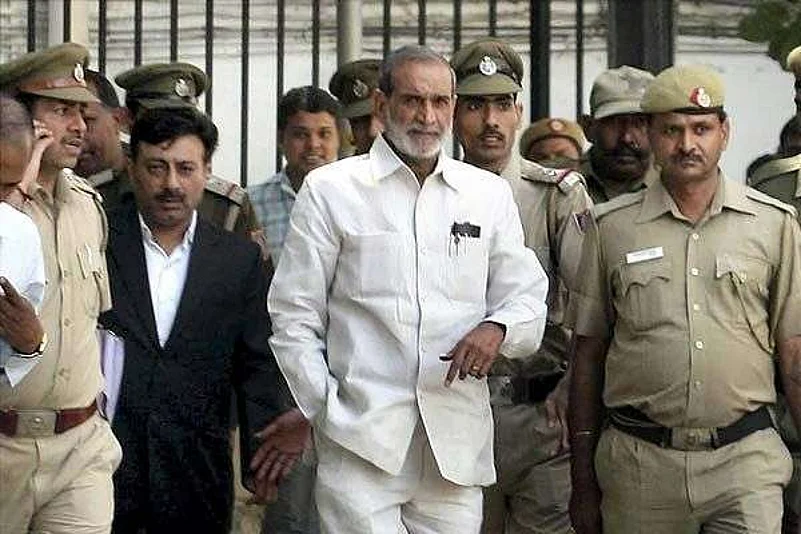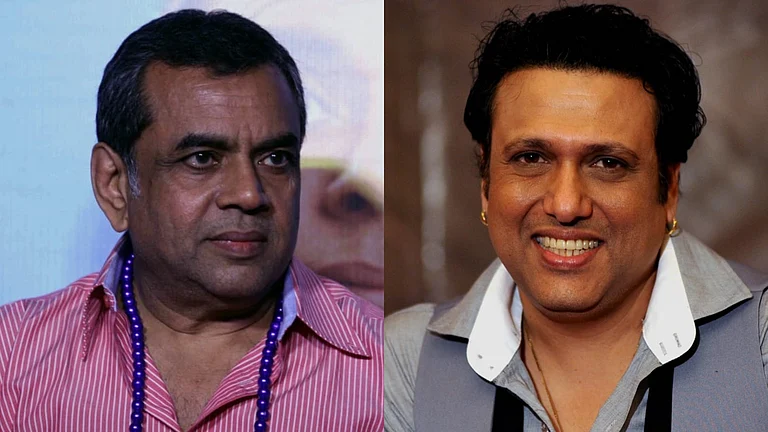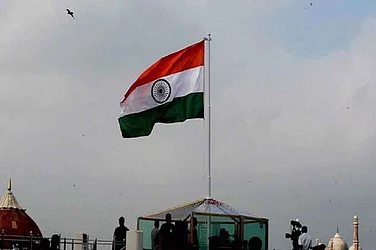Congress leader Sajjan Kumar was on Monday convicted and sentenced to life term for "remainder of his natural life" in the 1984 anti-Sikh riots case by the Delhi High Court.
The court said the riots were a "crime against humanity" perpetrated by those who enjoyed "political patronage".
The high court said though it was "undeniable" that it took over three decades to punish the accused in the case, it was important to assure the victims that despite the challenges faced by the court, "truth will prevail and justice will be done".
The case relates to killing of five Sikhs in Raj Nagar part-I area in Palam Colony in South West Delhi on November 1-2, 1984 and burning down of a Gurudwara in Raj Nagar part II.
The high court directed 73-year-old Kumar and other five convicts to surrender by December 31, 2018 and not to leave the city of Delhi.
Six accused, including Sajjan Kumar, who was a Member of Parliament at that time, were sent for trial in 2010 and three years later, the lower court had convicted five of the accused but acquitted the Congress leader of all the charges.
Deciding the appeals against acquittal of Sajjan Kumar, a bench of justices S Muralidhar and Vinod Goel convicted the Congress leader for offences of criminal conspiracy and abetment in commission of crimes of murder, promoting enmity between different groups on grounds of religion and doing acts prejudicial to maintenance of communal harmony and defiling and destruction of a Gurdwara.
The bench said the accused in the case were brought to justice "primarily on account of the courage and perseverance of three eyewitnesses" -- Jagdish Kaur, her cousin Jagsher Singh and Nirpreet Kaur.
Jagdish Kaur's husband, son and three cousins -- Kehar Singh, Gurpreet Singh, Raghuvender Singh, Narender Pal Singh and Kuldeep Singh -- were the five killed in the case. Nirpreet Kaur had witnessed the Gurdwara being burnt down and her father being burnt alive by the raging mobs, the bench also noted.
The bench also upheld the conviction and varying sentences awarded by the trial court to former Congress councillor Balwan Khokhar, retired naval officer Captain Bhagmal, Girdhari Lal and former MLAs Mahender Yadav and Kishan Khokhar.
The high court also convicted them for criminal conspiracy to burn down residences of Sikh families and a gurdwara in the area during the riots.
The trial court in 2013 had awarded life term to Khokhar, Bhagmal and Lal, and a three-year jail term to Yadav and Kishan Khokhar.
Following the high court verdict, life term of Khokhar, Bhagmal and Lal has been upheld and the sentence of Yadav and Kishan Khokar has been enhanced to a 10 years in jail.
The bench, in its judgement, observed, "While it is undeniable that it has taken over three decades to bring the accused in this case to justice, and that our criminal justice system stands severely tested in that process, it is essential, in a democracy governed by the rule of law to be able to call out those responsible for such mass crimes.
"It is important to assure those countless victims waiting patiently that despite the challenges, truth will prevail and justice will be done."
In its 207-page decision, the high court said it took as many as ten committees and commissions for the investigation into the role of some of the perpetrators to be entrusted in 2005 to the Central Bureau of Investigation (CBI), 21 years after the occurrence.
It said that only after the CBI entered the scene, that the witnesses, represented by senior advocate H S Phoolka, were able to be assured and they spoke up.
"Admirably, they stuck firm to their truth at the trial. This court is of the view that the mass killings of Sikhs in Delhi and elsewhere in November 1984 were in fact 'crimes against humanity'. They will continue to shock the collective conscience of society for a long time to come," the court said.
(PTI)


























